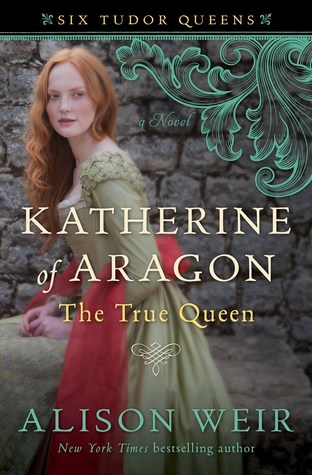Alison Weir’s ‘Katherine of Aragon, the True Queen’ is historical fiction at its finest
As a writer and an avid reader, I’ve always had a thing for genre exploration. While some of the best advice I’ve received as a writer is to never let a genre define your writing, the way other writers embody certain genres is interesting to me. I am most intrigued by — but have never attempted — historical fiction and nonfiction. I recently read a very long book about the life of the first wife of Henry VIII, “Queen Katherine of Aragon,” written by Alison Weir.
One thing I was wary of before pursuing this 22-hour long audiobook and 656-page book was that it’d be another overdramatized, over-sexualized novel about thin young men and women in a story that is starving for facts. But Weir’s tragic account of Katherine’s life is nothing of the sort. It is a beautifully crafted story that pulls no blinds over the truth about who I consider one of the greatest feminists of all time. It flushes out the life of a strong Catholic woman who faced anorexia, depression and multiple miscarriages yet still loved her adulterous husband because in her mind, it was right.
My previous statement sounds contradictory to the idea that Katherine was a feminist —that to stay dedicated to a man who cheats on you is the exact opposite. I used to think that myself — and still do in the context of modern life — but in Katherine’s story, it was the strongest thing for her to do as a woman under so much pressure.
This lengthy novel goes by surprisingly quick with the help of an audiobook. I always recommend using audiobooks when one thinks to endeavor reading large novels with complex storylines. It helps keep things on track. After reading the first two chapters, I realized the drama that was so enthralling to read about could actually be supported by historical evidence. None of it was extrapolated to terribly high degrees so as to destroy the history of Queen Katherine.
What makes this book so special is the dignity and the dedication the Spanish queen had. This woman had more than five miscarriages and gave birth to one girl. During this time, a queen not producing a male heir was a failure in marriage, which is why some say Henry had a good reason to attempt to divorce her. Without a legitimate male heir, Henry felt threatened that his royal line would end with him. This adds insult to injury for Katherine whose mother was Isabella I, a queen of great power recognized by history. Her repeatedly broken heart combined with her intense dedication to her husband and daughter are what caused her anorexia.
But what convinces me of her true feminist ideals was her undying dedication, even if it was to the wrong things. In Henry’s attempts to cut Katherine out as wife and queen, he moved her to other castles and demoted her to Princess Dowager of Wales. But, as a devout Catholic, she stated in the book that she would die married to her husband. Therefore, she would remain queen always. It was not the queenly title that she wanted so badly, but her marriage that she wanted to preserve.
Also mentioned in the book is her important political roles, among which she unofficially acts as the first female ambassador in European history and acting regent of England while Henry was away at war. Another crucial point in the book that convinced me of Katherine’s feminist ideology was her refusal to join a convent during Henry’s public affair with Anne Boleyn. By going to a convent and becoming a nun, Henry could claim marital abandonment on Katherine’s part and could easily marry Anne. While a smart idea — to avoid future strifes and live a life completely dedicated to God — Katherine could never bring herself to agree to this. To do so would give up her rites as Queen of England and her marriage to Henry.
There is one scene in the book that I have not been able to verify. It happens at the very end of the book during her time at Kimbolton castle at the end of her life. Men of the king come to give the queen and her servants an oath, declaring that Henry was now the head of the English Church, instead of the Pope. Her loyal English servants reluctantly took the oath, but, with the help of Katherine, her Spanish servants found a way out. Katherine claimed her Spanish servants needed to say the oath in Spanish because they couldn’t speak English. But in place of the real oath, Katherine told them to say that Henry had made himself head of the church, not that he actually was. I remember cheering a little when I read that scene. It was amazing how Katherine could spit in the face of the king without openly insulting him by taking advantage of language barriers and simple wording. She was truly masterful. Whether or not this actually happened, I like to think it did.
Towards the end of the book, Henry’s chief minister of Katherine: “Nature wronged her in making her a woman. But for her sex, she could have surpassed all the heroes of history,” I believe this was a true historical quote. During that time, a woman could receive no greater a compliment from a man. If she had been a man — or if she was born in our time — I believe she would have been an unstoppable force. My opinion of that is a result of the incredibly well-crafted tale of Katherine by Weir in “Katherine of Aragon, the True Queen.”
























